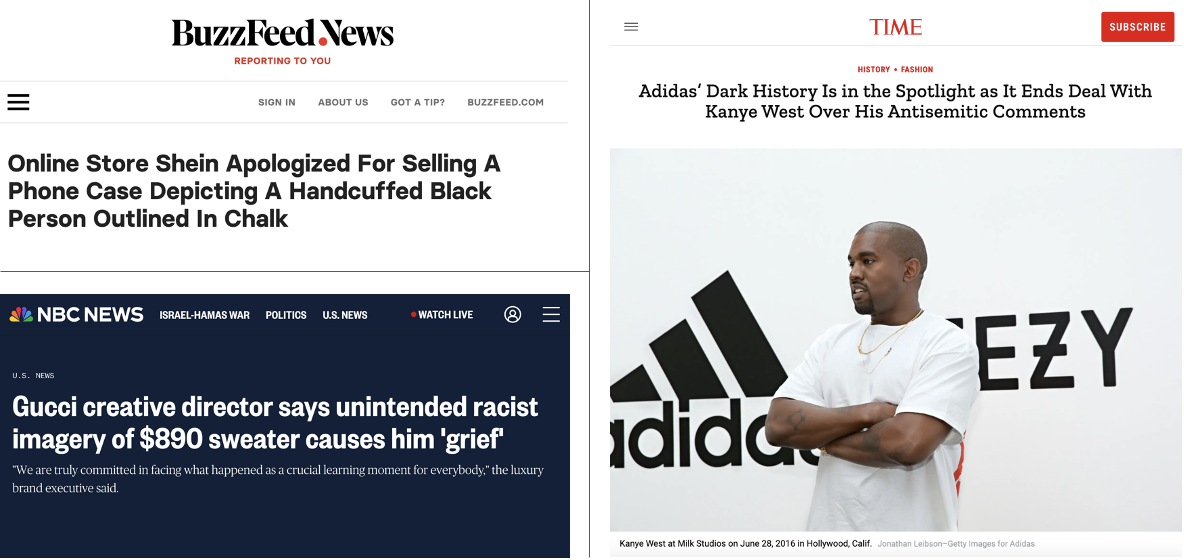THE POWER OF INCLUSIVE MARKETING
How to avoid marketing mistakes during Black History Month.
According to US consumers, Black History Month marketing messages are missing the mark. Find out why — and how your brand can get it right by working with your customers.
by Oretia Peart, Associate Director, C Space
Welcome to the second in a series of articles where we unpack common marketing mistakes brands and organizations make, share advice on how to avoid them, and signpost resources to help you maximize profit and build relationships with your consumers through thoughtful campaigns around cultural moments. Each article features a different cultural celebration in the US.
Today we explore Black History Month, also known as African-American History Month.
What does Black History Month mean to consumers?
In the spring of 2023, we spoke to 200+ consumers across the US to understand their feelings and attitudes towards Black History Month as well as how it is celebrated and marketed by brands.
The purpose of Black History Month is to highlight and celebrate the contributions of African-Americans to the development of the US. It is a month-long observance that coincides with other prominent festivities and federal holidays such as Valentine’s Day and Presidents’ Day. Our DEI ThinkTank wondered: Considering the numerous observances in February, do Black History Month marketing messages resonate with and feel relevant for US consumers? It turns out, the messages do not.
In celebrating Black History Month, consumers favor first-hand accounts from the Black community. Indeed, marketing campaigns featuring lesser-known Black historical figures, Black business leaders, employees, celebrities and families, and campaigns that align with the organization and brand’s story, resonate most with consumers as the right approach. They also build trust and credibility. So, for this and future Black History Months, consider passing the microphone to the relevant voices in the room, and avoid messages including controversial quotes, symbols or double entendres.

Black History Month marketing messages highlighting partnerships with Black-owned businesses and lesser-known Black historical figures drive consumers’ interest in a brand.
Best-in-class brand recognition is yours for the taking.
Three in 10 consumers we spoke with could not identify a single brand that excelled at celebrating Black History Month. One in 10 mentioned Target, and even fewer than one in 10 each referenced Nike, Walmart, Ulta and Apple. Of note, there were no ethnic or racial differences among consumers, indicating their impartial recognition for brands that are doing it well.
To rank as best-in-class, a brand’s celebration of Black History Month (akin to its
celebration of MLK Day in the month prior), must be sincere, relatable and enduring.
CUSTOMER QUOTE
“I think Nike does a good job celebrating Black History Month with how they uplift women like Serena Williams and Coco Gauff as Black women in a predominately white male sport like tennis. ”
It must also include authentic representations of the Black community. Black History Month marketing messages highlighting partnerships with Black-owned businesses, celebrities, lesser-known Black historical figures and interracial families, drive consumers’ interest in a brand. Meanwhile controversial quotes, particularly those with historical negative connotations (e.g., Black boy joy), are less impactful.
Ready to make your marketing more inclusive?
DEI is not one-size-fits-all – that’s why we’ve designed a solution to start with you and your team and build from there. Find out how C Space’s DEI ThinkTank can transform you business.
You must first carefully assess your own brand.
What’s your brand story?
Consumers are acutely aware of a brand’s past and present, controversial, prejudicial or discriminatory behaviors and associations, whether intentional or not. A quick scan of the internet spotlights several brands that have, over the years, undergone negative press, which continues to impact consumers’ thoughts and feelings towards brands and their marketing campaigns.

In effect, consumers question the sincerity and appropriateness of the brand’s efforts in celebrating Black History Month; and despite well-intentioned plans, consumers infer incongruencies, insincerity, and tokenism.
CUSTOMER QUOTES
“SHEIN [should avoid celebrating Black History Month because they haven’t made up for a mistake they made in previous marketing]. They stole from an independent black artist and used her depiction of police brutality against minorities as a design for a phone case and defended this by saying they wanted to support Black Lives Matter — yet wouldn’t pay the artist for their work, license the image, or actually
support a Black charitable initiative.”
“I just don’t know if [Black History Month] should be part of marketing. It seems like another way to exploit and profit off of Black people and Black culture. Maybe the only people who should use it in advertising are Black-owned businesses.
”
Where applicable, be transparent about owning your mistakes and develop a strategy to make amends for past wrongs and dispel concerns of tokenism.
Are you in it for the long-haul?
Long-term commitments, like Mattel’s to diversity and representation*, including the release of its Black Barbies in the 1960s, cement brand authenticity at the time of celebrating Black History Month. Likewise, marketing campaigns for brands that demonstrate tangible and long-lasting impact on the subject matter are more likely to resonate with consumers. And while Black History Month may last a season, a brand’s continuous commitment positively correlates with brand growth all year-round.
CUSTOMER QUOTES
“What about rest of the year? Yeah, helping Black business and Black culture by donation and running campaigns is good, but does it really solve the problem of racism against people entirely? So we should also do more permanent solutions.
”
“Mattel… because of the diversity in dolls. Target a little bit because they actually work with black designers.
”
“In celebration of Black History Month, brands such as IPSY makeup subscription, Jack Daniel’s whiskey and Sirius XM broadcasting are extending their inclusive marketing efforts beyond the month of February.
”
Have you invited the right people to the podium?
In celebrating Black History Month, consumers favor first-hand accounts from the Black community and partnerships resulting in tangible impact.
Black History Month marketing campaigns showcasing accomplishments and contributions of Black people, their culture, stories and views, are perceived as more authentic. It’s also important to be specific about your organization’s
(or brand’s) commitment in a tangible way.
CUSTOMER QUOTES
“I don’t think brands celebrate Black History month very well because they just want to sell things. I think local block parties and events that support small businesses owned by people of color are the best ways to celebrate Black History month.
”
It’s time to transform your business.
Best practices dictate that all corporate initiatives should bring a DEI lens, so your insights are future-proof. Our DEI ThinkTank has helped some of the world’s most well-known B2B and B2C brands with their DEI initiatives. Let us do the same for you.
About C Space’s DEI ThinkTank.
We’re a cross-functional team bringing together real-time learning from clients, third-party experts and our proprietary research. Our goal is to accelerate our collective learning at C Space to transform our business, mobilize our clients and change the industry.
Read more about the work we do here.
Thank you for reading the second in a series of articles on inclusive marketing. If you missed it, you can read
the first here:
What Do Customers Expect from Brands on MLK Day?
Watch this space for successive chapters: deep dives into cultural celebrations and observances in the US and around the world and practical advice on how brands can participate in inclusive and authentic ways.


